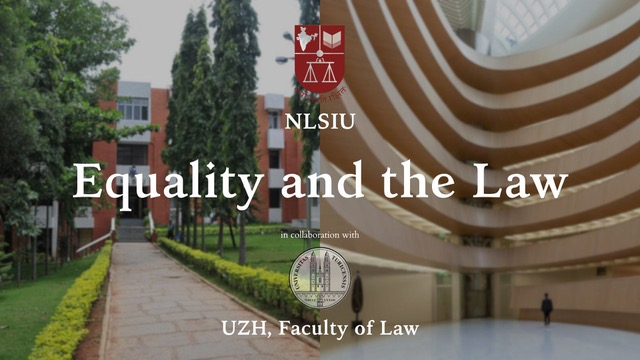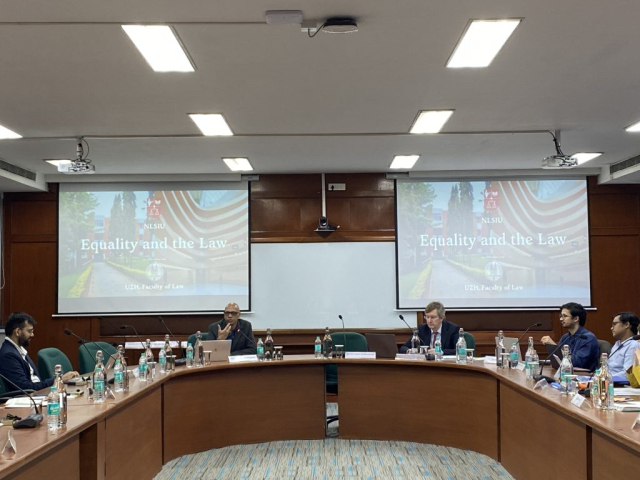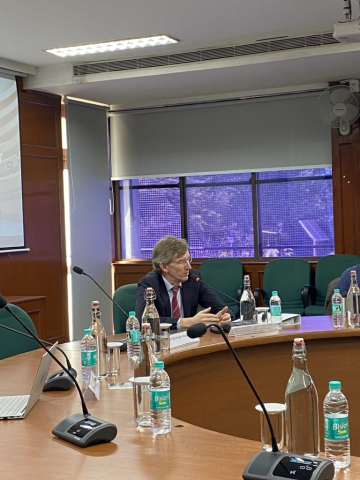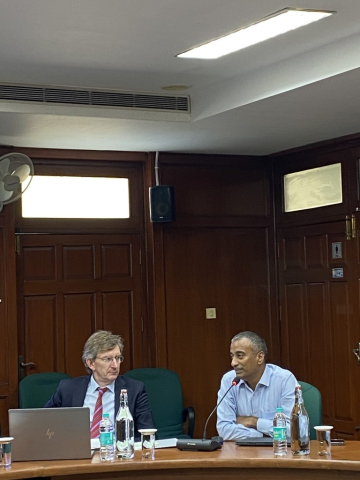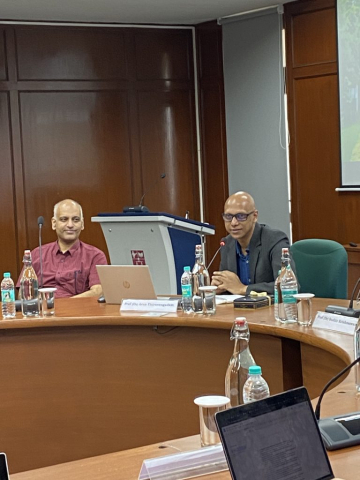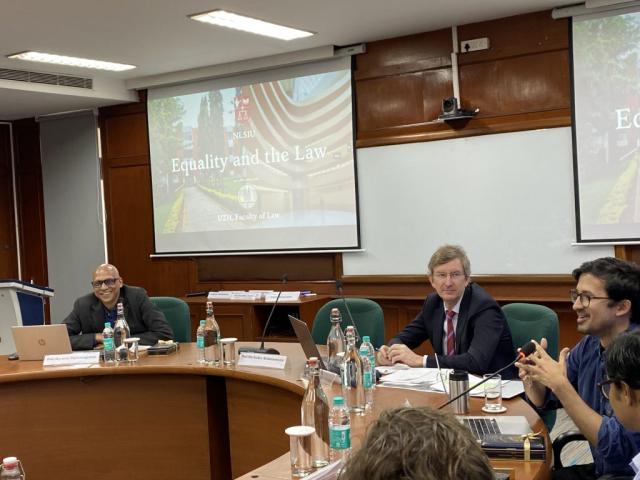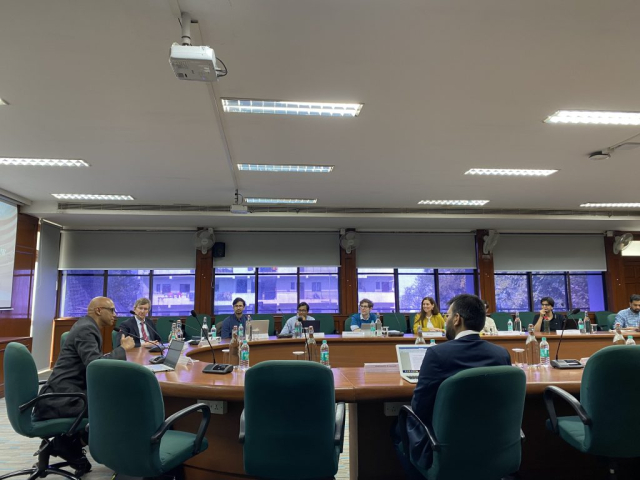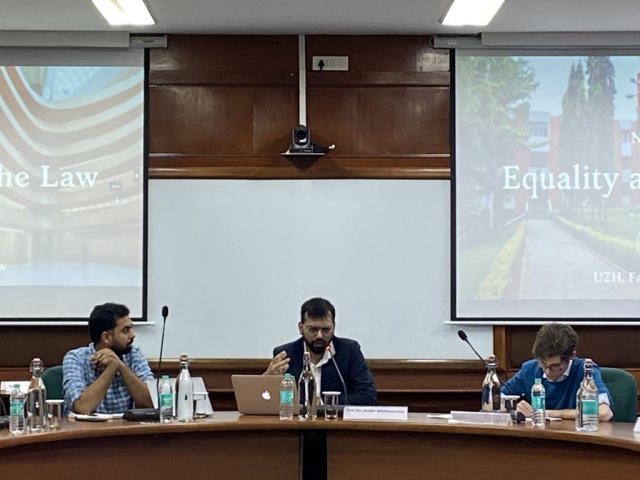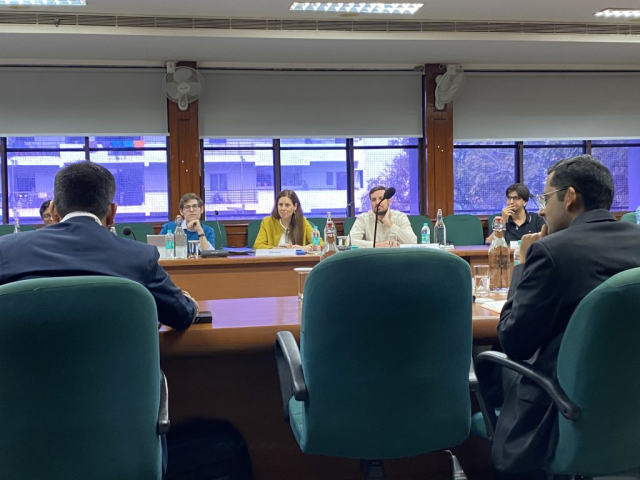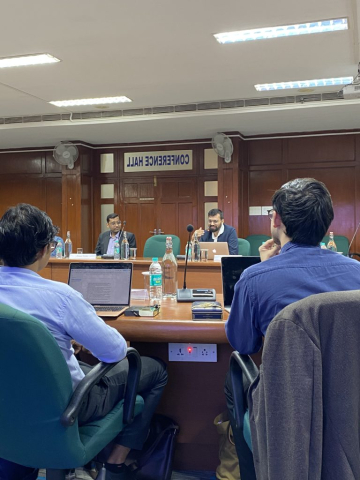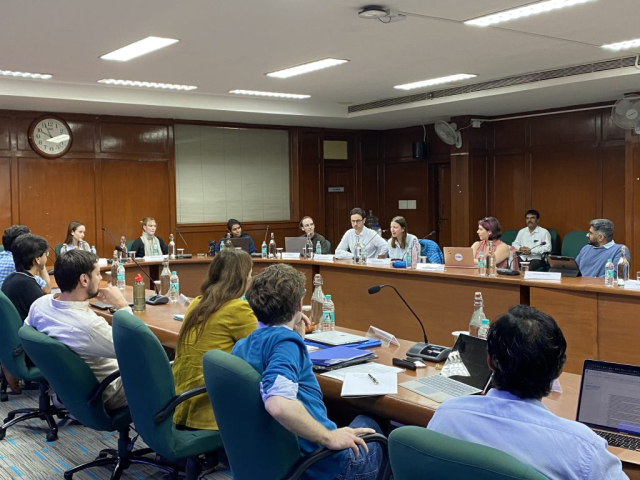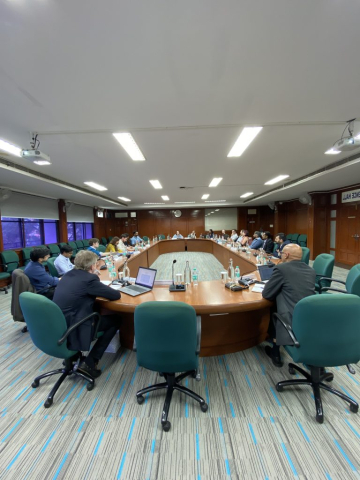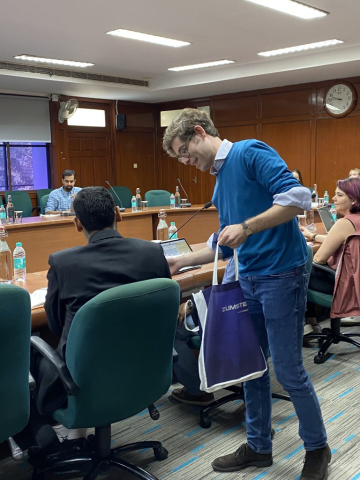The National Law School of India University, Bengaluru is launching a new BA (Hons.) programme for the upcoming Academic Year 2025-26. This is a 3-year programme with the option of an additional 4th year for a research track. Ahead of the programme launch, the University organised an extensive stakeholder consultation for the NLS BA (Hons) Programme on December 4&5, 2024. The stakeholder consultation saw participation from eminent academics as well as industry experts from various fields, including academia, film, publishing, architecture, politics and more. The aim of the consultation was to enhance the quality of the planned programme structure and syllabi through their inputs and advice on the curriculum. The curriculum of the NLS BA will be further refined based on the feedback received through these consultations.
The programme schedule of the stakeholder consultations is provided below.
DAY 1
December 4, 2024
9:00 AM:
Welcome remarks by Prof. (Dr.) Sudhir Krishnaswamy, Vice Chancellor, NLSIU
9:15 AM – 10:45 AM:
Economics | Roundtable 1
Vijayamba R, NLS (Moderator)
Reetika Khera, IIT- Delhi
Arjun Jayadev, Azim Premji University
Jayan Jose Thomas, IIT-Delhi
Sneha Thapliyal, NLS
10:45 AM – 11:15 AM:
Tea
11:15 AM – 12:45 PM:
Sociology & Anthropology | Roundtable 2
Atreyee Majumder, NLS (Moderator)
Deepak Mehta, Ashoka University
Rowena Robinson, IIT- Bombay
Farhana Ibrahim, IIT-Delhi
Gayatri Menon, Public Health Foundation of India
Satish Deshpande, ISEC
Ammel Sharon, NLS
Anindita Adhikari, NLS
12:45 PM – 2:00 PM:
Lunch
2:00 PM – 3:30 PM:
History | Roundtable 3
Anwesha Ghosh, NLS (Moderator)
Mahesh Rangarajan, Ashoka University
Pratyay Nath, Ashoka University
Manu Devadevan, IIT-Mandi
Prashant Keshavmurthy, McGill University
Janaki Nair, formerly JNU
Gitanjali Surendran, O P Jindal Global University
Chandrabhan Yadav, NLS
3:30 PM – 4:00 PM:
Tea
4:00 PM – 5:30 PM:
Politics | Roundtable 4
Dayal Paleri, NLS (Moderator)
Sunalini Kumar, BITS Law
Pooja Satyogi, AUD
Gurpreet Mahajan, formerly JNU
Rinku Lamba, NLS
Debangana Chatterjee, NLS
DAY 2
December 5, 2024
9:30 AM – 11 AM:
Career-facing Arts and Letters | Roundtable 5
Sneha Thapliyal, NLS (Moderator)
Karthik Venkatesh, Penguin Random House
Praveen Krishnan, The Ken
Nandan Kamath, Boundary Lab
Prasad Khanolkar, School of Environment and Architecture
Jaydeep Sarkar, Filmmaker
Anindita Adhikari, NLS
11:00 AM – 11.30AM:
Tea
11:30 AM -12.30PM:
Closing Remarks
Parvati Sharma, Fiction-writer
Rajeev Bhargava, Political Theorist (CSDS)
Sudhir Krishnaswamy, Vice Chancellor (NLS)
Reflections from the Panelists
Janaki Nair, Formerly JNU
“NLSIU has embarked on an ambitious new BA programme, put together by an extremely talented and innovative faculty in the humanities and social sciences. The programme hopes to cultivate skills and dispositions that are critical to the times in which we live. These will range from critical and innovative thinking, to greater empathy and tolerance, and increased sensitivity to the absolute imperative of creating a more just, equal and free society. The location of such a course in a Law School that has earned an excellent reputation nationally and internationally, and the rich interactions between these domains, will further enhance the experience, the training and inputs that students can expect to receive.”
Karthik Venkatesh, Executive Editor, Penguin Random House India
“The NLS BA Programme is very promising indeed. I see in it a perfect blend of academics and real-world practice that would prepare students for different kinds of careers, based on their interests and aptitude.”
Rowena Robinson, Professor of Sociology, Department of Humanities and Social Sciences, IIT-Bombay
“It is exciting to hear that NLSIU, building on its sound reputation and its well-established BA LLB program, proposes to expand with a new BA (Hons) programme built around disciplines such as Economics, Sociology and Anthropology, Political Science and History. This greater attention to humanities and the social sciences is timely, particularly as their importance for inculcating critical thinking and reasoning abilities, promoting the appreciation and analysis of social and cultural diversity, attaining a broad comparative and historical comprehension of the world, and enhancing communication capacities and ethical awareness is being increasingly emphasized globally. The programme, as envisaged by the School, also has components of Indian language learning and the development of career and professional competencies. Moreover, students will benefit from the already existing expertise in law and public policy at the School. With its excellent faculty and emphasis on rigour, NLSIU is well placed to run such a programme that can broaden students’ intellectual foundations, nurture them as informed citizens, and prepare them for today’s challenging and changing world of work.”
Reetika Khera, Professor (Economics), IIT-Delhi
“I am excited to hear that NLSIU will begin a BA in Economics that allows students to take courses in history, law, political science and sociology too. Economics is done best, when it is done with a broader understanding of the society we live in, and the NLS BA (Hons) programme is striving to give students that opportunity.”
Pratyay Nath, Associate Professor of History, Ashoka University
“I think the great thing about the new curriculum is that the history faculty (at NLSIU) has come up with a variety of electives that they’re offering, and how well they go with the core courses being offered. The core courses give a very sound understanding of South Asian history within the larger global context, while the electives help students explore a variety of themes related to history, caste, gender, law, society, culture, etc. And these courses exist as pathways for students to explore these very broad categories of the past. And the great thing is that the faculty includes a bunch of young historians who are at the cutting edge of historical research. They’re constantly researching, publishing, mentoring students, and they bring all of that expertise into teaching these excellent set of courses in the classroom. So I’m really excited to see how the programme unfolds in the future, and I think, great things are awaiting!”
Follow this page for further updates.

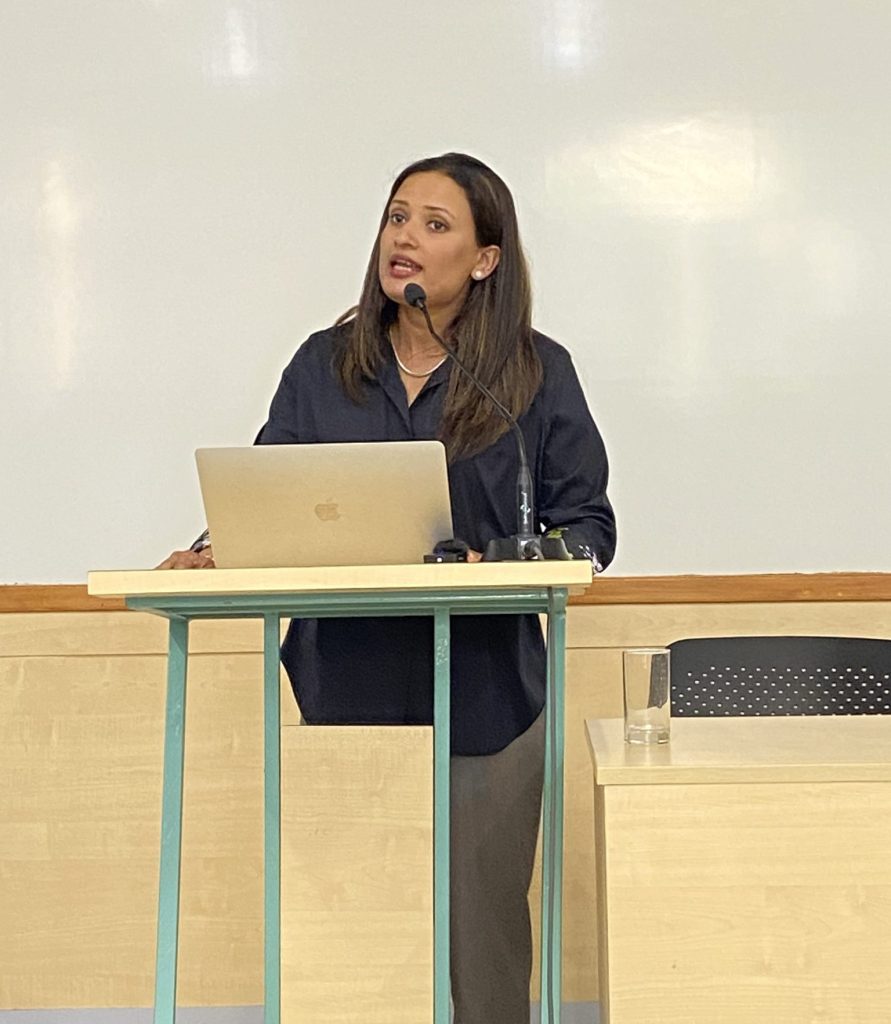 The
The 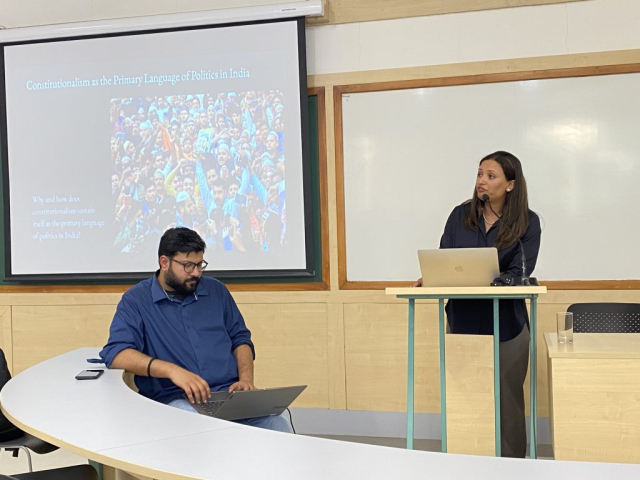
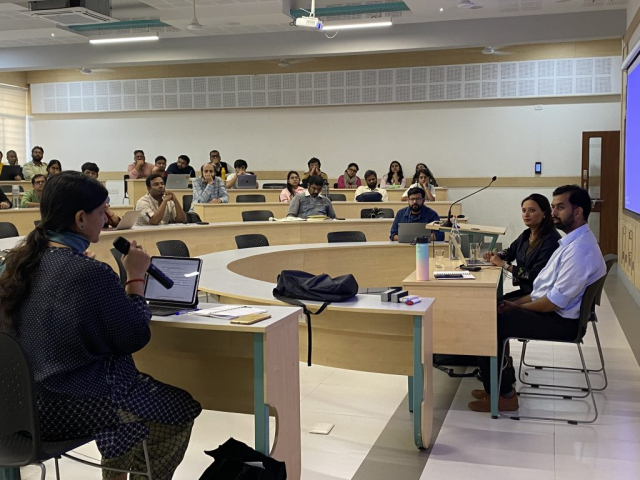
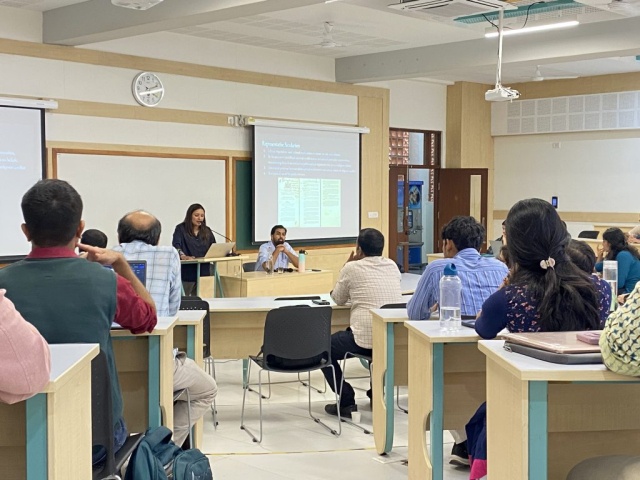
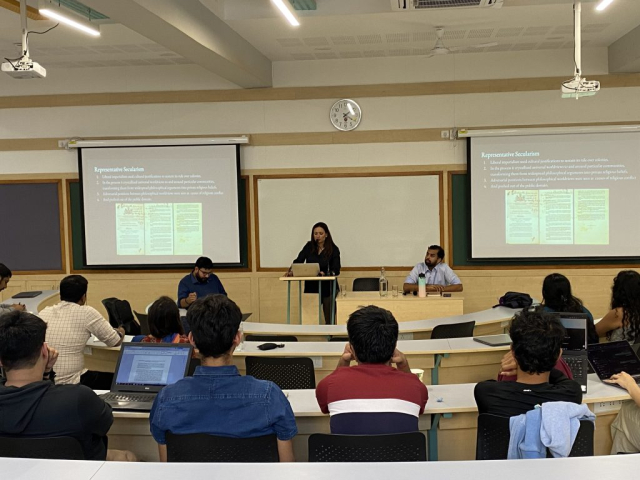
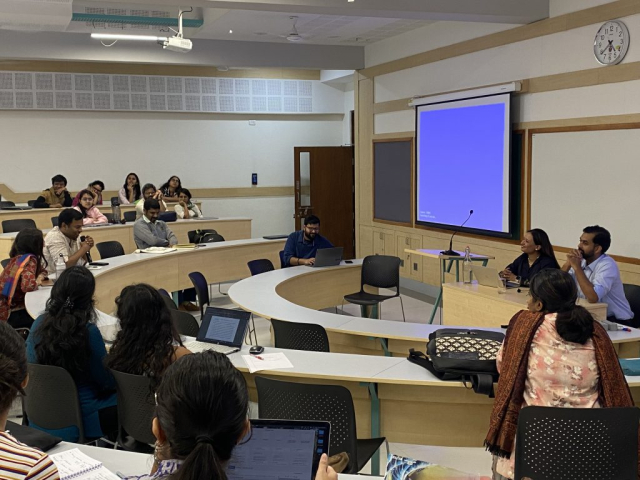
 NLSIU’s
NLSIU’s 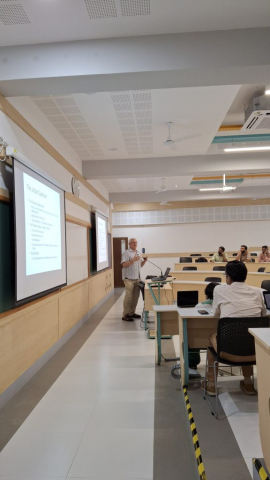
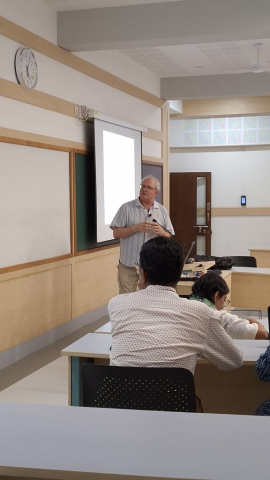
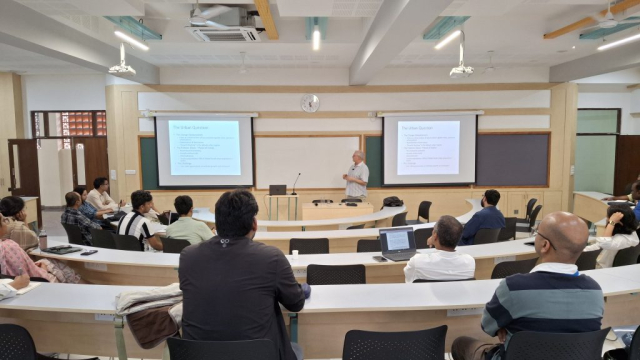
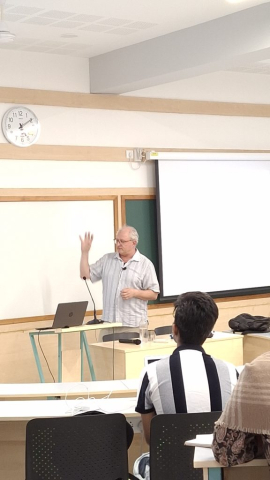
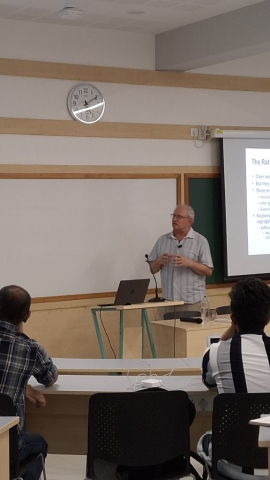
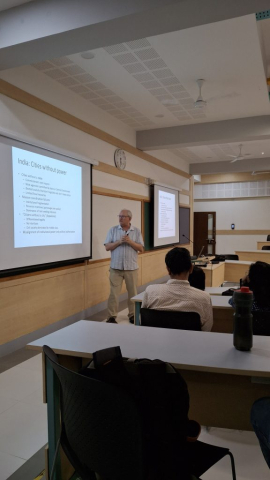
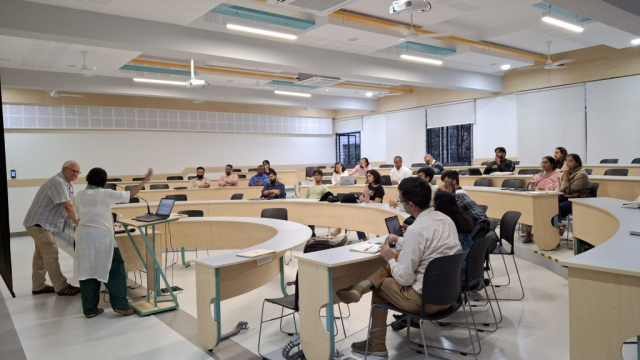
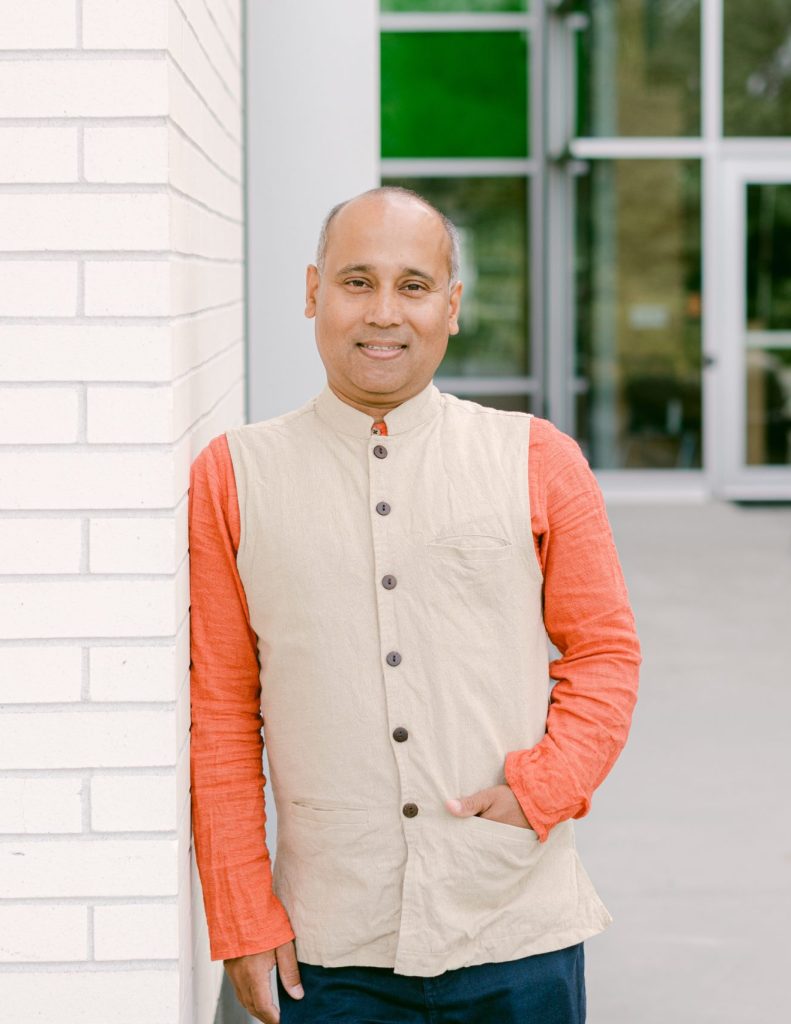 In our upcoming public lecture on December 18, 2024, NLSIU will host a book discussion with
In our upcoming public lecture on December 18, 2024, NLSIU will host a book discussion with 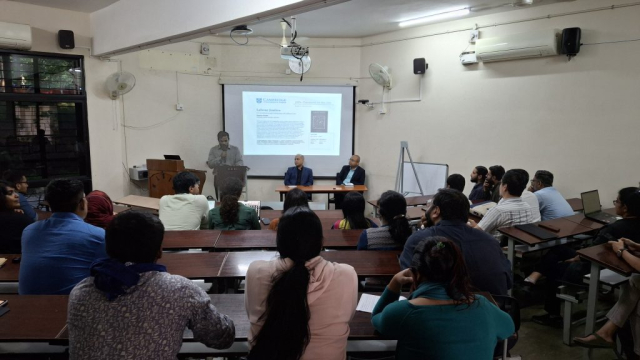
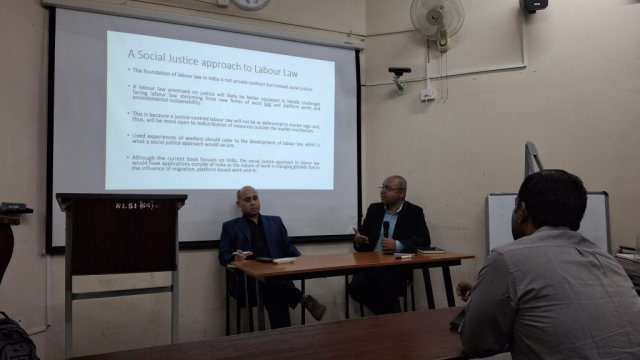
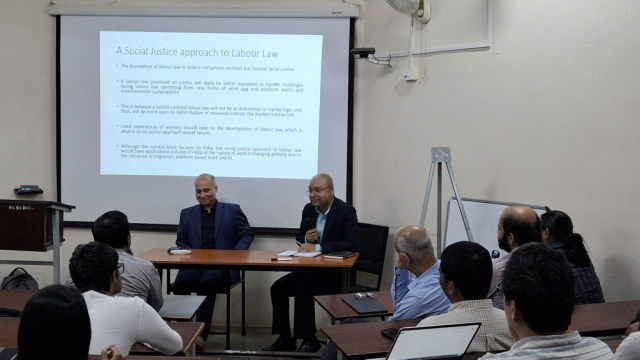
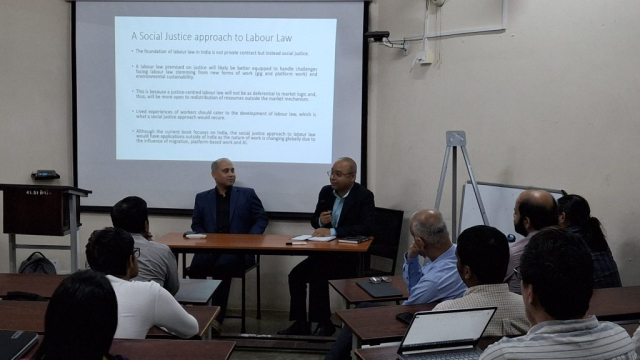
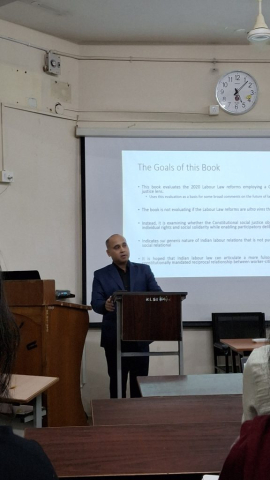
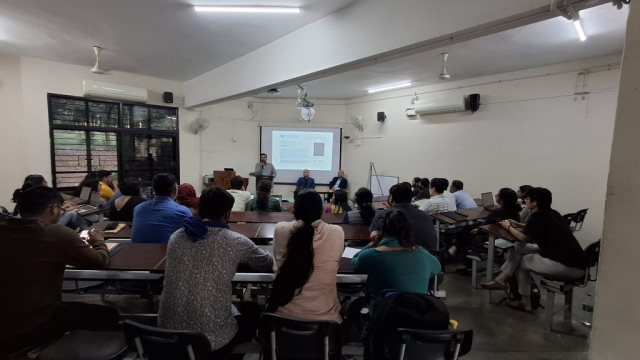
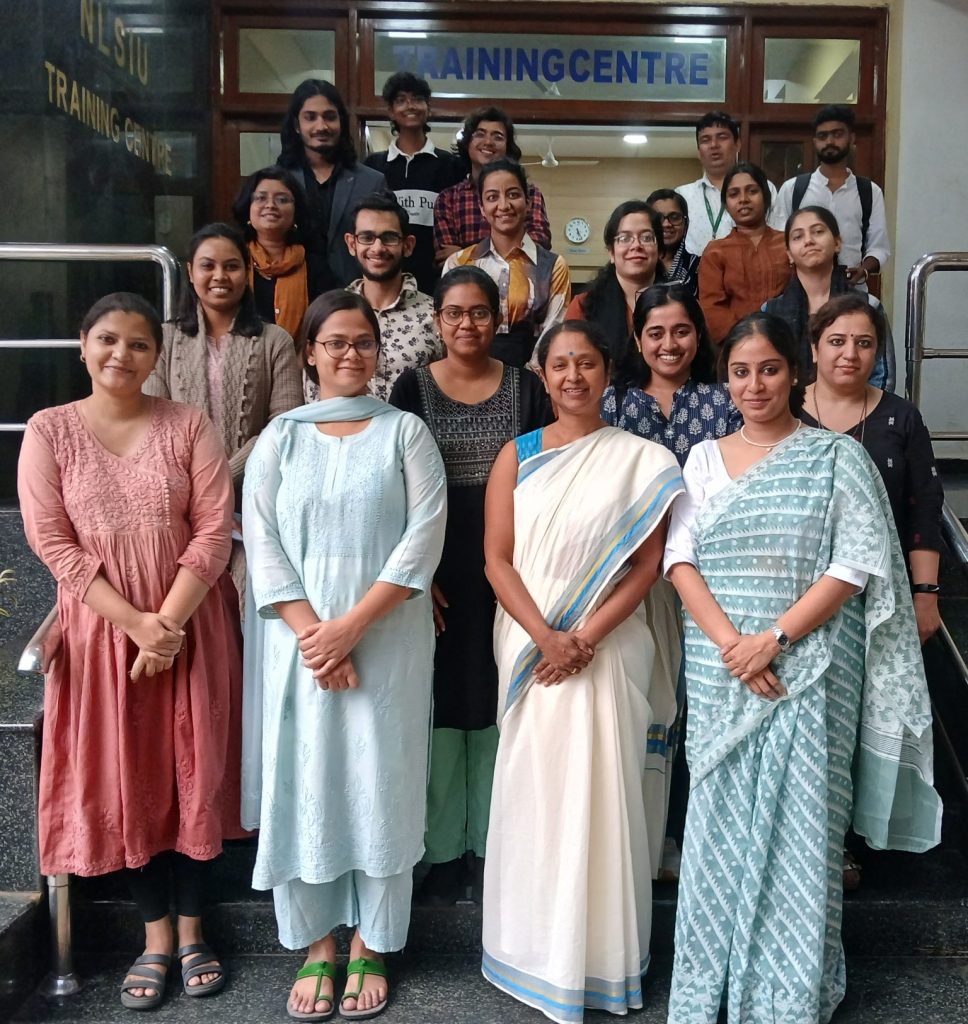 The Centre for Women and the Law (CWL) is organising an in-person workshop on December 14, 2024, on the NLSIU campus for a proposed volume titled ‘Politics of Waiting and an Expanding Gender Horizon: The Social, Political, and Legal Discourses in India.’
The Centre for Women and the Law (CWL) is organising an in-person workshop on December 14, 2024, on the NLSIU campus for a proposed volume titled ‘Politics of Waiting and an Expanding Gender Horizon: The Social, Political, and Legal Discourses in India.’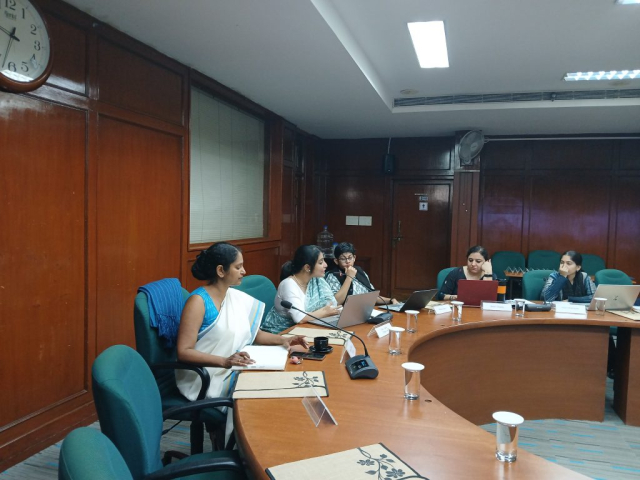
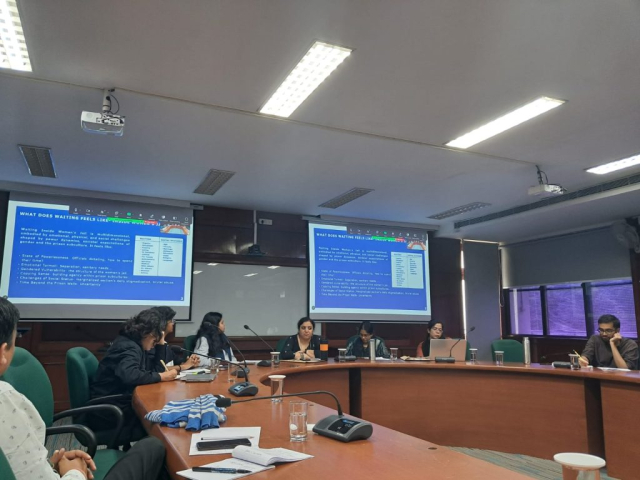
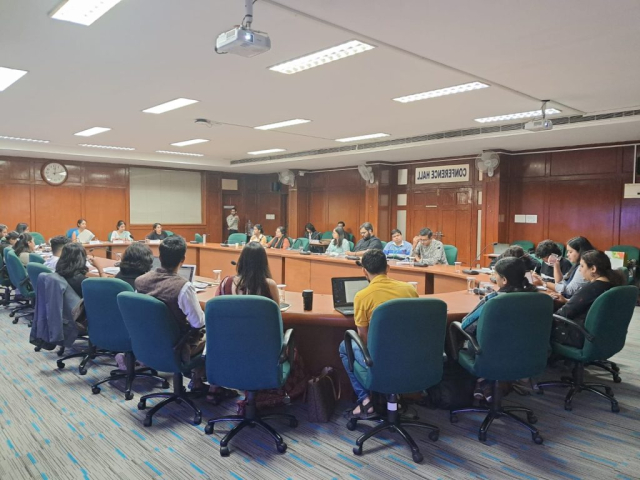
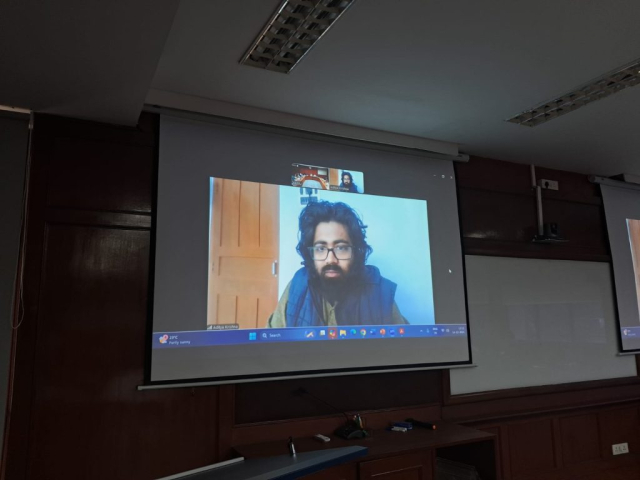
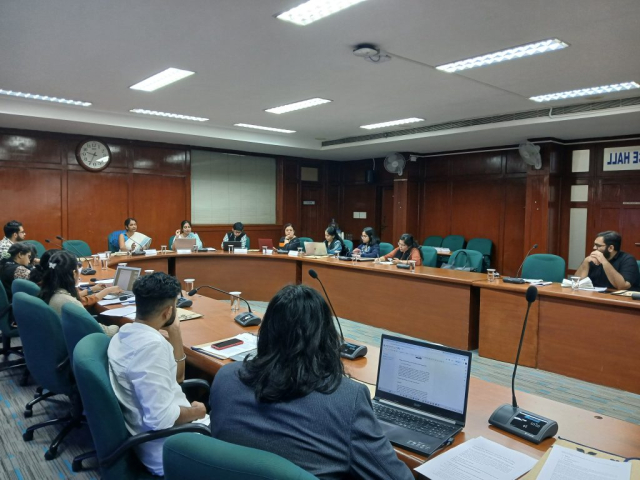
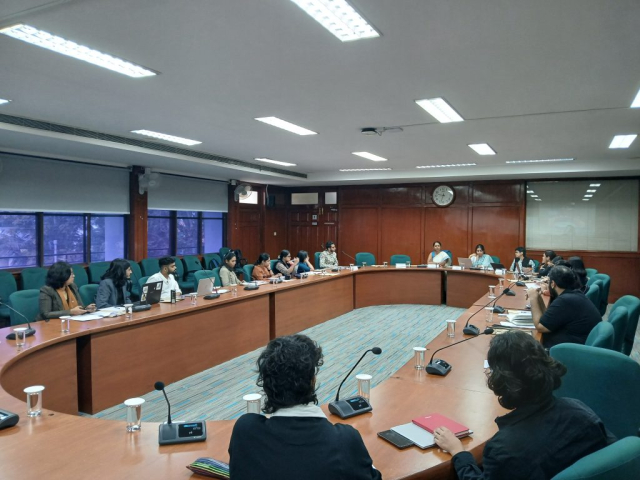
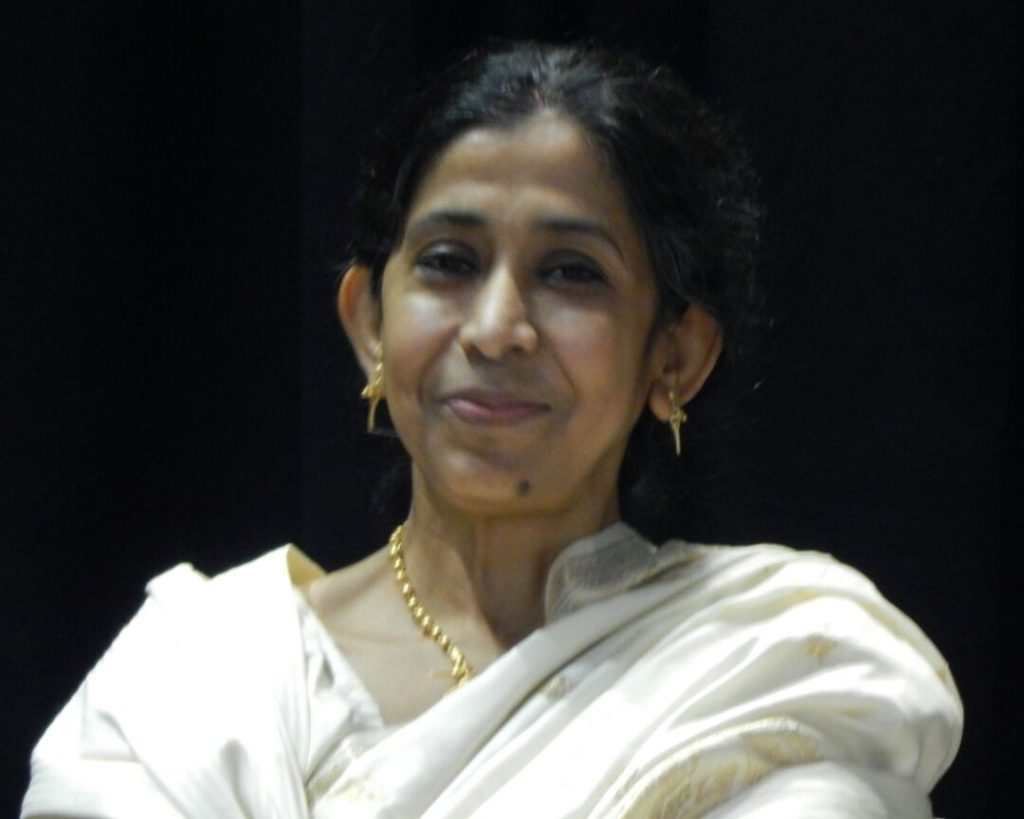 In our upcoming public lecture on December 11, 2024, NLSIU will host a talk on ‘The Making of Subalterns across History’ with
In our upcoming public lecture on December 11, 2024, NLSIU will host a talk on ‘The Making of Subalterns across History’ with 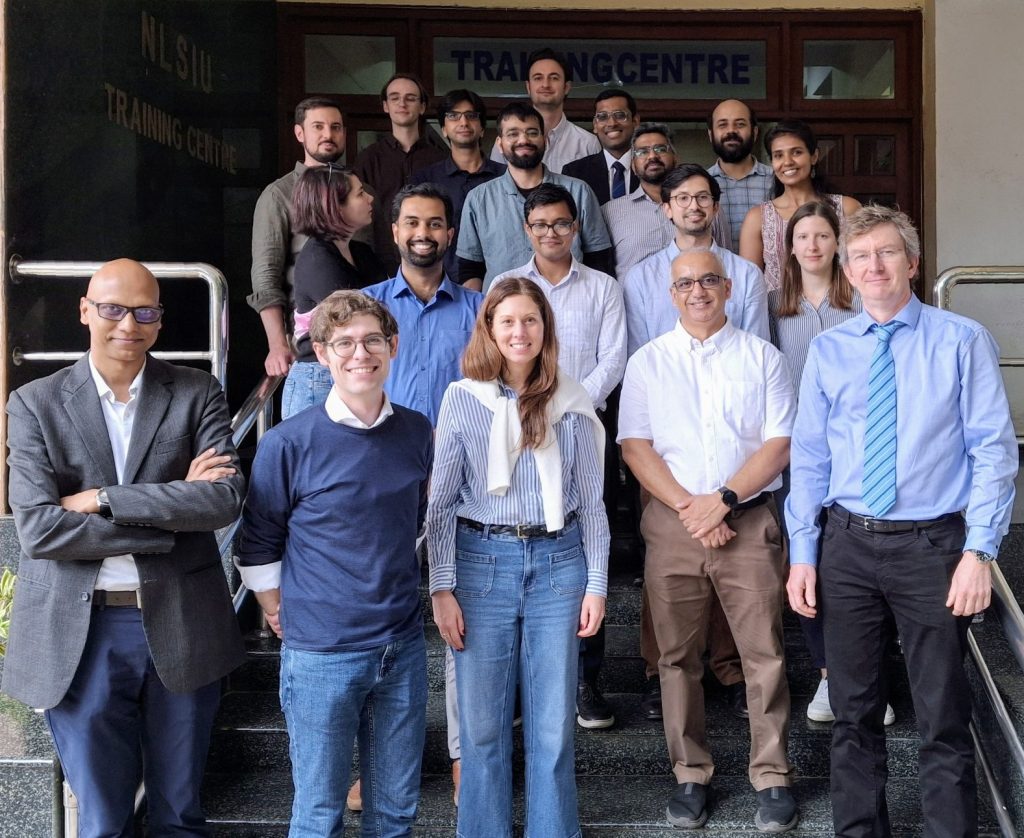 The National Law School of India University (NLSIU) will host the ‘Equality and the Law’ Workshop in collaboration with the University of Zurich (UZH), Faculty of Law on December 3 and 4, 2024.
The National Law School of India University (NLSIU) will host the ‘Equality and the Law’ Workshop in collaboration with the University of Zurich (UZH), Faculty of Law on December 3 and 4, 2024.